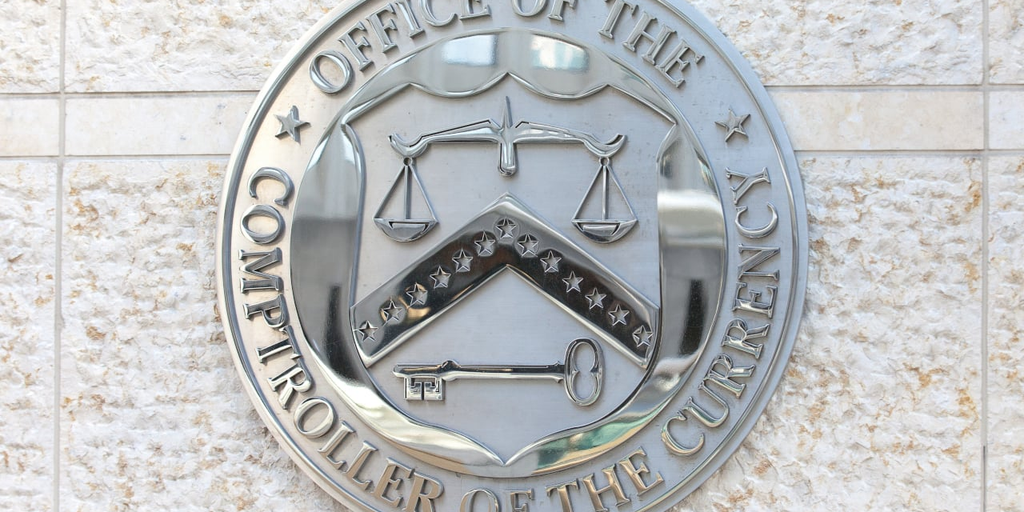Summary
- The OCC has revoked its consent order concerning digital asset bank Anchorage Digital.
- This order was initiated in 2022 following the conditional approval given to Anchorage in 2021.
- Anchorage, a federally chartered bank, manages some of the Bitcoin and Ethereum within BlackRock’s spot ETFs.
On Thursday, the Office of the Comptroller of Currency (OCC) announced it has lifted its cease and desist order against Anchorage Digital.
The regulator initially issued a consent order to Anchorage, a federally chartered digital asset bank, in 2022 due to its inadequate compliance program related to the Bank Secrecy Act and anti-money laundering (AML) mandates.
According to the termination order, the OCC concluded that the bank’s safety and compliance does not necessitate the continuation of the order.
Receiving conditional approval from the OCC in 2021 enabled Anchorage Digital to offer crypto custody services to clients, marking it as the first federally chartered bank to manage digital assets. The termination of the consent order comes after demonstrated compliance by the bank.
“When we sought the charter, we understood the challenges we were facing: it was an uncharted territory for any crypto firm, and many in our sector—and throughout Washington—perceived that digital assets and regulations were fundamentally incompatible,” stated Nathan McCauley, co-founder and CEO of Anchorage, on Thursday.
“We chose this path not for ease, but because we believed it was a beneficial long-term strategy for the industry—establishing a foundation of trust, safety, and sustainability for the future,” he added. “And in a sector eager to ‘launch to the moon,’ the daunting challenge of our federal charter mission has been a driving force from the very beginning.”
Headquartered in South Dakota, Anchorage focuses on services like custody, staking, trading, and governance. Recently, BlackRock selected Anchorage to secure a portion of the Bitcoin and Ethereum for the asset manager’s prominent spot ETFs.
In May, the OCC confirmed that national banks under its supervision could buy, sell, and manage any crypto assets in their custody. Since then, firms such as Circle, Ripple, and Paxos have applied for charters aiming to become nationally regulated banks.
Daily Debrief Newsletter
Receive daily updates with the latest news stories, alongside original features, a podcast, videos, and more.


